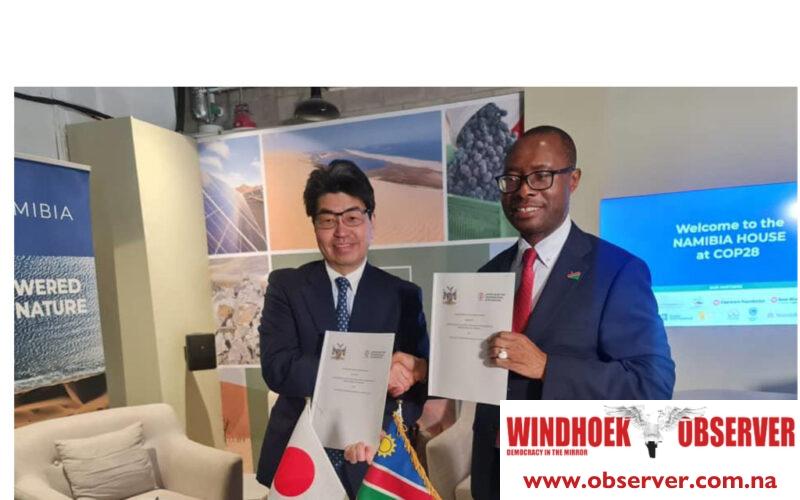Martin Endjala
The Namibian and Japanese governments signed a memorandum of understanding with the Japanese Bank on International Cooperation in the area of economic, environmental and social sustainability at the Conference of Parties (COP28).
The signing aligns with Namibia’s climate goals, with the collaborative agreement focusing on financing the carbon-capturing project.
The MoU was signed at the ongoing COP28 to the United Nations Framework Convention on Climate Change (UNFCCC), scheduled from 30 November to 12 December 2023 in Dubai, United Arab Emirates.
Minister of Finance and Enterprises Iipumbu Shiimi, indicated that the MoU is a demonstration of the relationship that Namibia has with Japan, and it will enable the country to achieve aspirations for green industrialisation while contributing to the greater good of decarbonising the planet.
“We would like to explore our options to work together in technologies that will help to decarbonise the world, but also in particular, our two countries. This is an area that we are focused on as a country because we have ambitions to decarbonize our energy sector, but also more importantly, to help the world reach net zero targets”, said Shiimi.
He said that COP28 is of particular significance as it focuses on the full implementation of the Paris Agreement, which emphasises emissions reduction, technology transfer and capacity building.
Furthermore, he noted that Namibia’s position at COP28 is firmly rooted in the African Leaders Nairobi Declaration on climate change, an urgent call to the global community to reduce emissions, fulfil their obligations, honour past promises and support the African continent in addressing climate change.
Namibia’s position, Shiimi highlighted, is to build on four critical pillars, which are finance, adaptation, mitigation, capacity building and technology transfer, aligning with the key tenets of the Paris Agreement.
He said that Namibia is advocating for increased climate finance, equitable distribution of funds between adaptation and mitigation, ambitious nationally determined contributions from all nations and enhanced support for climate technology transfer.
COP28 serves as the decision-making body of the UNFCCC, where nations convene to assess the progress in dealing with climate change and deliberate on future actions.




